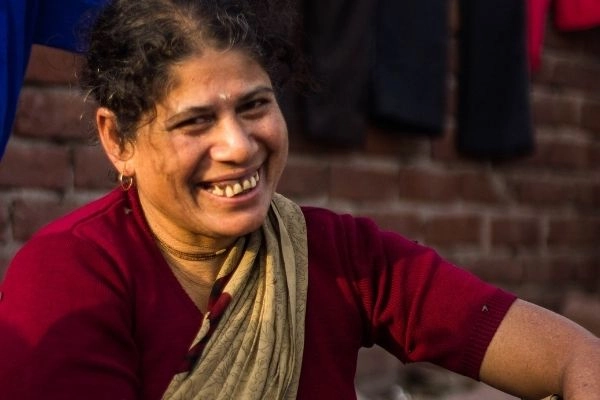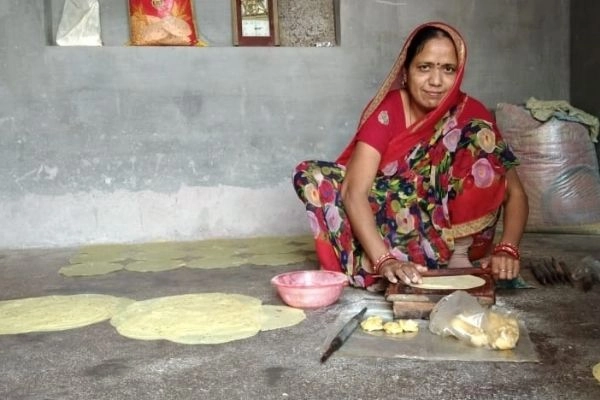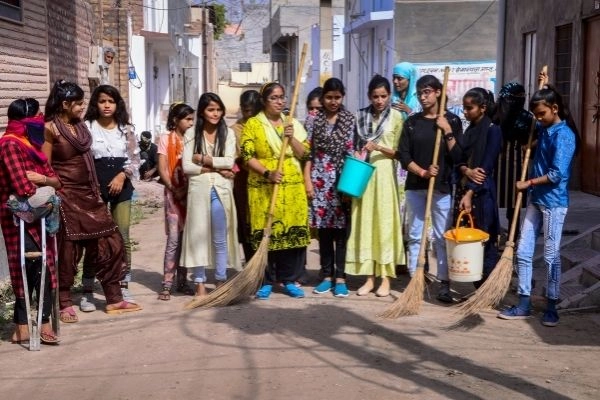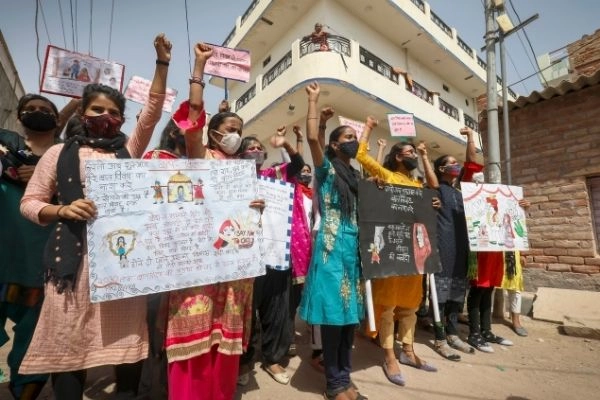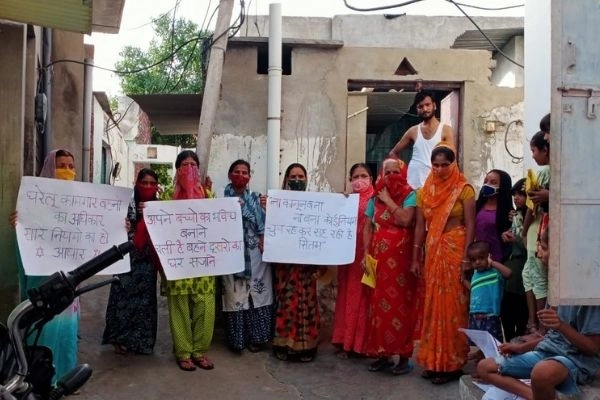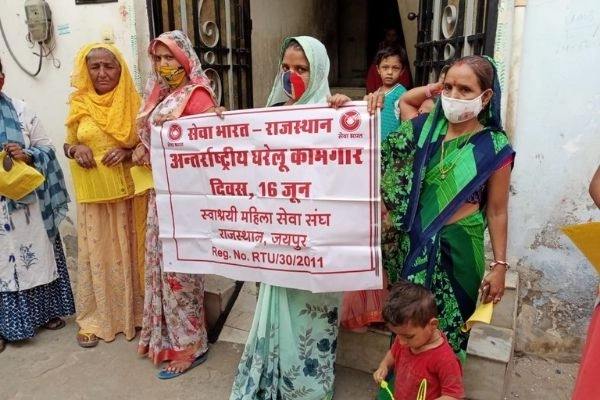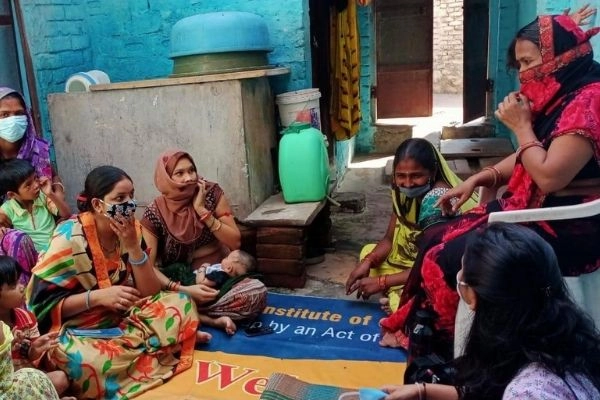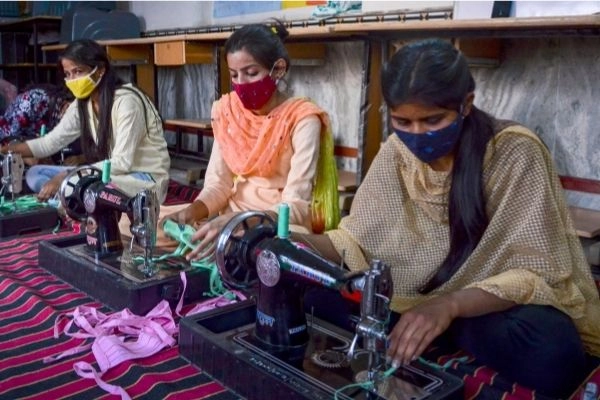SEWA’s History in Rajasthan
Rajasthan has more than 60% of the migrant labor force in the unorganized sector, such as construction laborers, domestic workers, tie-dye workers, beedi rollers, and lac makers.
Women across all the trades are primarily involved in pre-production and production activities. They are largely left behind in the post-production activities such as accessing markets, controlling cash income, and also lack ownership or control of productive resources. Most of them do not have access to any health insurance or social security schemes and lack primary identification documents such as Aadhaar cards, PAN cards, and ration cards.
SEWA started its work in Rajasthan in mid-2001 when it began to organize informal women workers in Jaipur and Bikaner across the trade groups of beedi rollers, papad workers, construction workers, and lac makers. It is currently also trying to reach out to the sweepers and street vendors in the informal settlements.
SEWA’s interventions in Rajasthan are designed to build the leadership capacity of the grassroots women, improve their collectivization, support trade-specific skill development building, and enable women to access better social security and health facilities.
Major Trade Groups
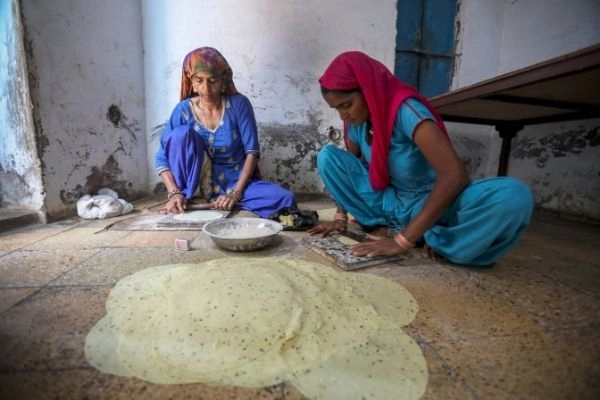
Home-based workers
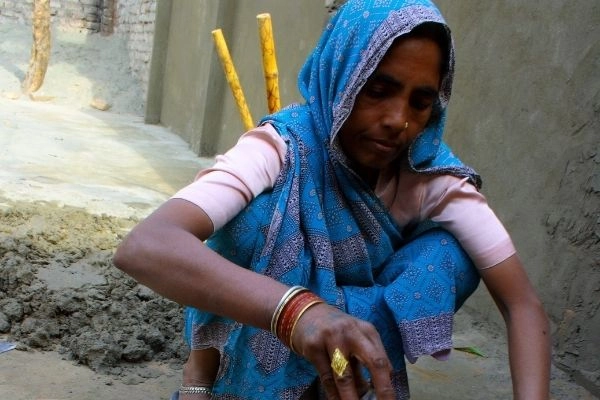
Construction Workers
